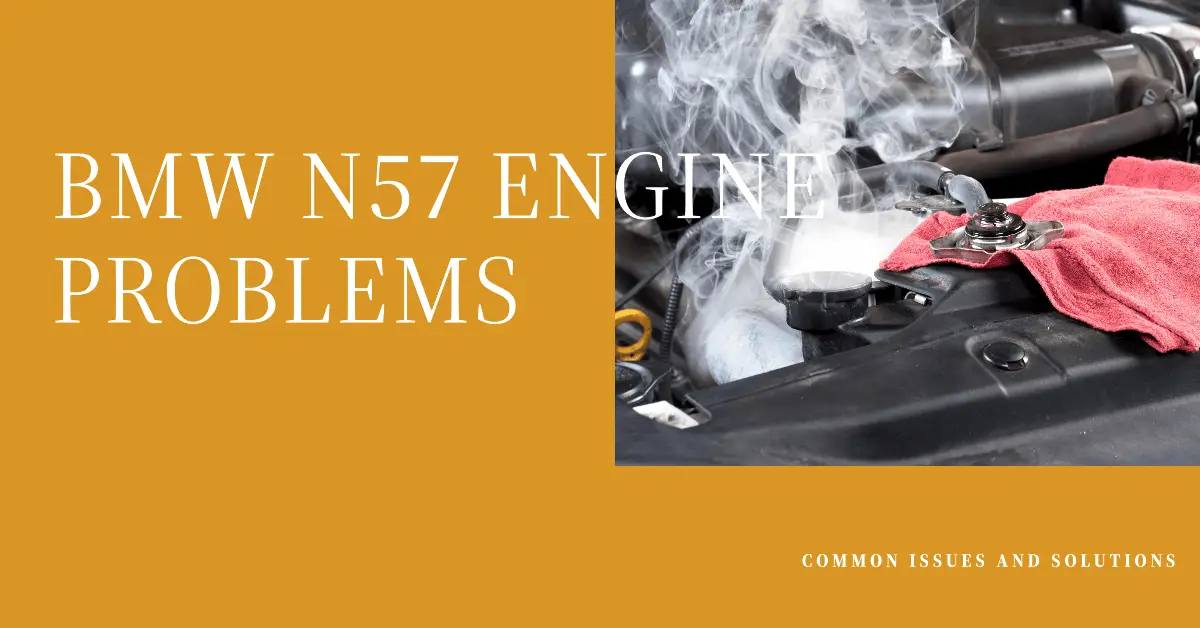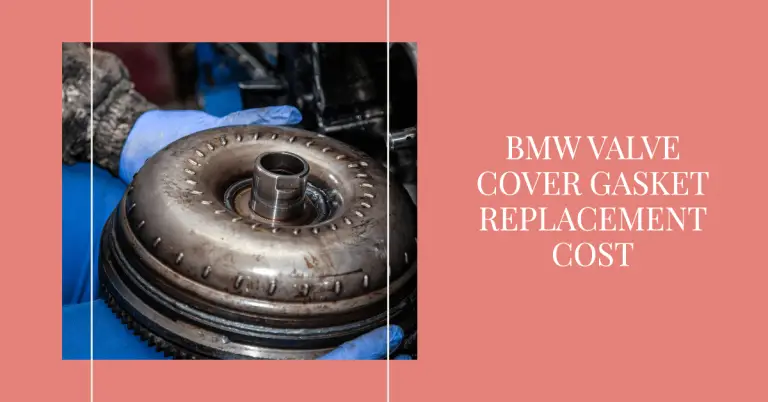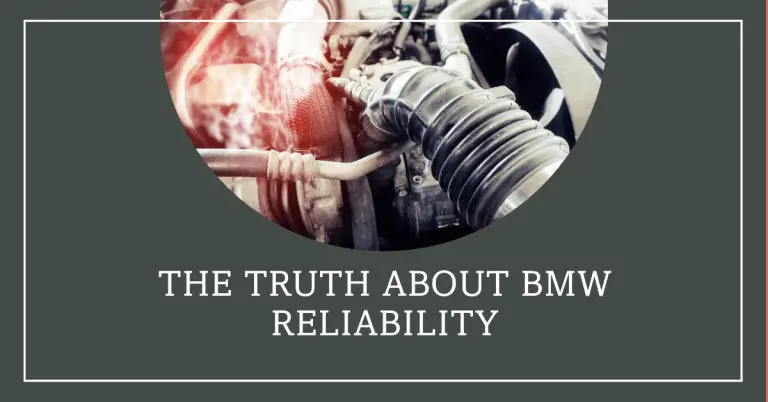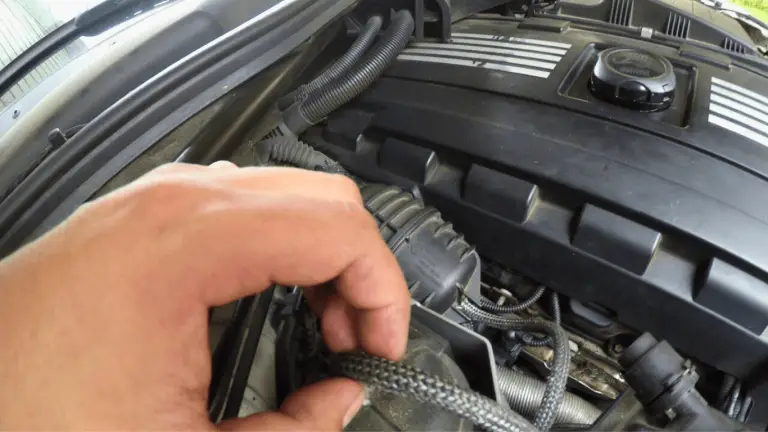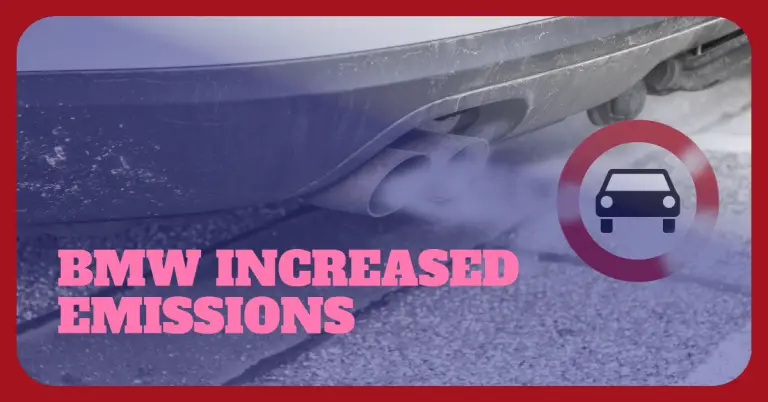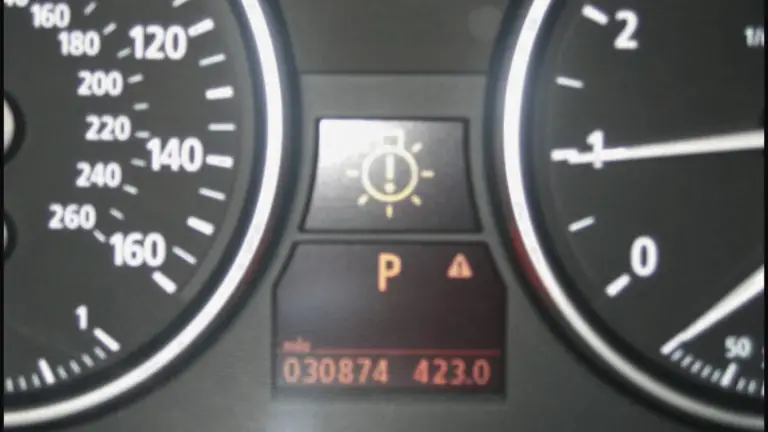BMW N57 Engine Problems: Common Issues and Solutions
Have you noticed some concerning symptoms from your BMW’s N57 diesel engine lately? Loss of power? Excess smoke? Strange noises? As a BMW owner, you take pride in the performance and luxury your vehicle provides. But over time, wear and tear inevitably takes a toll. Fortunately, by understanding the most common BMW N57 engine problems, you can catch issues early and take action to avoid catastrophic engine failures down the road.
In this detailed guide, we will cover:
- An overview of the BMW N57 diesel engine
- The major weak points and problem areas
- Symptoms to watch out for
- Maintenance tips to extend engine life
- When it makes sense to sell vs repair
- And much more!
Arm yourself with the knowledge to maximize your N57 engine’s longevity and make smart decisions when problems arise.
BMW N57 Engine Overview
First debuting in 2009, the BMW N57 is a 3.0-liter straight-six diesel engine with advanced common rail direct injection and turbocharging. Compared to its predecessor, the N47, the N57 represented a major step forward in terms of:
- Power – Early N57s produced 245 hp, later versions over 350 hp
- Efficiency – Up to 38 mpg highway when new
- Driving dynamics – Rear-wheel drive configuration
- Refinement – Smoother and quieter operation
The N57 engine was utilized across a wide range of BMW models during its 10 year production run, including:
- 5 Series sedans and touring wagons
- 7 Series luxury sedans
- X3, X4, and X5 SUVs
- Alpina high performance vehicles
While the N57 engine delivers a great driving experience with impressive fuel economy, it does have some inherent design flaws and problem areas, which we will cover next.
Major BMW N57 Engine Problem Areas
Despite being associated with the prestigious BMW nameplate, N57 engines have a number of widely reported weaknesses and failure points:
Premature Timing Chain Wear and Failure
One of the most common N57 issues is premature wear and failure of the timing chain. The timing chain connects the crankshaft to the camshafts and keeps all valve and injection timing in sync. If the chain stretches or snaps, catastrophic engine damage can occur.
Some contributing factors include:
- Weak timing chain guide materials
- Improper chain to sprocket tolerances
- Oil leaks starving the chain of lubrication
Symptoms of a worn timing chain include:
- Rattling or knocking at idle
- Check engine light for cam/crank correlation errors
- Oil leaks from timing case cover
In most cases, the timing chain needs to be fully replaced, which is a complex repair.
Carbon Buildup on Intake Valves and Injectors
Carbon buildup on intake valves and fuel injectors is another very common N57 issue. Some causes include:
- Direct injection sends fuel directly into cylinders rather than intake ports
- EGR system recirculates exhaust gasses back into the intake
- Short driving trips prevent complete heat cycling
Over time, layer upon layer of carbon accumulates restricting airflow and fuel delivery. Symptoms include:
- Reduced power and performance
- Rough idle
- Misfires
- Higher emissions
Cleaning the valves and injectors can help, but removal and replacement is often required.
Turbocharger Failures
The N57 utilizes sophisticated variable geometry turbochargers to deliver power while maintaining fuel efficiency. However, these turbos tend to fail prematurely. Some common problems include:
- Worn turbo bearings causing shaft play
- Failed seals leading to oil leaks
- VGT mechanisms seizing up
- Blocked vanes
Turbo failures cause:
- Lack of power
- Excess smoke
- Oil leaks
- Engine warning lights
Replacement of the faulty turbocharger is required, an expensive repair.
Diesel Particulate Filter Issues
The diesel particulate filter (DPF) in the exhaust system captures soot but needs to undergo “regeneration” to clear it. Insufficient driving cycles can clog the DPF over time. Symptoms include:
- Reduced power
- Excess smoke
- Foul exhaust odor
- DPF warning light activation
DPF replacement is often required if forced regeneration attempts are unsuccessful.
Additional Problem Areas
Some other problematic N57 components include:
- Glow plugs for cold starting
- EGR valves and coolers
- Swirl flaps
- NOX sensors
- Fuel injector seals
- Oil filter housing gasket
How to Diagnose N57 Engine Problems?
Diagnosing issues starts with noticing any drivability, performance, or warning light concerns. From there:
- Scan for fault codes using an OBD2 scanner
- Inspect engine bay for leaks or visible damage
- Listen for odd noises or sounds
- Review maintenance records
- Consider oil analysis to check wear metals
This can help narrow down the root cause. Be sure to use a knowledgeable BMW mechanic for complex diagnostics.
N57 Engine Problem Symptoms
Here are some common symptoms associated with the problem areas mentioned earlier:
- Loss of power
- Excess smoke from exhaust
- Rough idle
- Engine sounds like a diesel knock or rattle
- Illumination of check engine or other warning lights
- Higher than normal fuel consumption
- Oil leaks
Multiple issues may be present, so proper professional diagnosis is key before making repairs.
N57 Maintenance Tips – Prevention is Ideal
While N57 problems can’t be avoided entirely, diligent maintenance is absolutely critical to maximize engine longevity:
- Follow the manufacturer maintenance schedule – Don’t skip oil, filter, and fluid changes
- Use OEM or high quality parts – Avoid cheap aftermarket components
- Change oil more frequently – Every 5-7k miles or 6 months
- Use qualitysynthetic motor oil – Helps minimize sludge
- Fix leaks immediately – Prevent oil starvation and contamination
- Drive gently – Limit harsh acceleration and towing strain
- Allow proper warmup and cooldown – Allows complete heat cycles
- Address carbon buildup – Intake cleaning at 60-80k miles
While this extra care comes with additional cost, it maximizes the return on your BMW investment.
N57 Engine Repair and Replacement Costs
Due to complexity and labor hours, many N57 repairs approach or even exceed $5,000 at BMW dealerships and independent shops:
- Timing chain replacement – $4,000 – $6,000+
- Turbo replacement – $3,000 – $4,500
- Carbon cleaning – $1,200 – $1,800
- Injector replacement – $3,000 – $4,000
- DPF replacement – $1,500 – $2,500
Add this up over the lifetime of an N57 and costs really add up. After the vehicle warranty expires, owners bear the financial burden.
Some choose to save on labor costs by purchasing quality parts online and doing DIY repairs. But extensive mechanical skills are required.
Using quality aftermarket or remanufactured components can offer cost savings, but avoid cheap parts that may fail prematurely.
When Does it Make Sense to Sell an N57 BMW?
At some point, the increasing cost and frequency of N57 engine repairs may outweigh the value of the vehicle. Here are some signs it may make sense to sell:
- Age or mileage – Over 120k miles, 10+ years old
- Major repairs needed – Full timing chain job, turbo replacement
- Recurring issues – Spending $1-2k in repairs annually
- Much cheaper to replace the car – Wholesale value less than repair costs
- Concern over future reliability – Loss of faith in engine
If the costs are ballooning and major repairs loom, the financially savvy choice can be to sell the car while it still has decent value. That cash can go towards a newer, more reliable BMW. Or perhaps it’s time to explore other luxury brands.
On the other hand, well-maintained lower mileage N57 cars may merit investing repair dollars to keep enjoying the vehicle. As with any car, look at the totality of the situation.
Conclusion
While the BMW N57 engine provides strong performance and fuel economy, it does come with a number of widely reported design flaws and problem areas that can prove costly as the miles add up. However, by learning the warning signs, staying diligent with preventative maintenance, using quality replacement components, and finding a trusted independent BMW specialist, N57 owners can maximize their engine’s longevity and minimize the impacts of repairs.
For older or high mileage N57 vehicles, it may reach a tipping point where selling the car and upgrading makes the most financial sense. But understanding the most prevalent N57 issues at least allows owners to make educated decisions that extend the enjoyment of their BMW. With advanced knowledge and preventative care, the N57 can be reliable for many miles to come.

